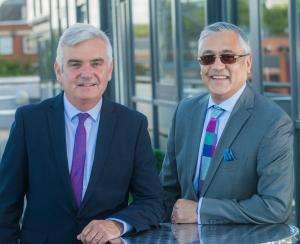New regulator eyes more 'proportionate' fitness to practise system

by Andy McNicoll
The leaders of England’s new social work regulator want to introduce a more “proportionate” fitness to practise system when taking over from the Health and Care Professions Council next year.
Social Work England chair Lord Patel said the organisation was considering how to address issues with the current FtP system, where cases referred for a hearing take an average of 18 months to complete whether they concern “a horrendous thing" or a less severe issue.
Speaking at the BASW England annual conference in Bristol, he said legal powers given to Social Work England allowing it to make changes to certain “rules” governing its work without having to go back to parliament would help.
“If HCPC wants to change that [fitness to practise] process because it doesn’t make sense and you could deal with some cases in a month, they have to go back to parliament and it will take about two years to get that rule changed,” Lord Patel said.
“What they’ve done with us is give us that rule making ability so that we can say for some people we’ll make a decision this way, for others we’ll take this long, and here are the safeguards.”
A 2017 study by academics at Sheffield, Central Lancashire and Manchester Metropolitan universities examined the experiences of social workers subject to HCPC investigations.
The research, published in the British Journal of Social Work, revealed the “emotional toll” of the FtP process was one of three key themes of concern. The length of proceedings “exacerbated” the impact on social workers’ health, with some waiting two years for cases to conclude.
The HCPC's most recent annual report on FtP shows the organisation had improved the time taken to complete cases referred to hearings from an average of 21 months in 2016 to 18 months in 2017.
At the BASW event, Social Work England chief executive Colum Conway said feedback from the profession and public would be “at the heart” of any changes to the way the new regulator handled concerns. A set of “detailed rules” on registration, fitness to practise, education and training were being drafted and would all be consulted on, he added.
“You will get the opportunity to come back at every stage and say here’s what we think. It all has to be consulted on up front. We believe that a transparent approach is absolutely fundamental to what we do,” he said.
Conway said the ability of Social Work England to attach conditions on a social worker’s registration, such as restricting the types of work they can do while they have a time limiting health condition, would also allow a more “proportionate” response to some concerns and “maximise retention in the workforce”.
He moved to reassure social workers over the costs of transferring from the HCPC to the new regulator. He said the government would cover the set up costs of Social Work England and the organisation had a two-year budget meaning registration fees would not rise before 2020.
Lord Patel announced four appointees to Social Work England’s board, including former Cafcass chair Baroness Tyler of Enfield and Dr Andrew McCulloch, ex-chief executive of the Mental Health Foundation charity.
Conway said the regulator would also soon be advertising for a Director of Standards role, and was seeking a candidate with senior management experience in social work.
“We felt it was really important that we have the social work voice at a senior level in the organisation,” he said.
Conway and Lord Patel both spoke of their own professional backgrounds as social workers. Conway told delegates they were "proud of social work" and said the new regulator would be "underpinned by values" the profession would recognise.
